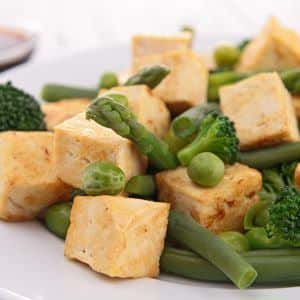
Do soy products protect the heart? For years, researchers assumed that people who ate soy products had lower cholesterol and therefore lower risk of heart disease. However, the results of previous studies have been inconclusive.
Could Consuming Soy Products Protect the Heart?
The latest research includes more than 168,000 women participating in the Nurses’ Health Studies and over 40,000 men in the Health Professionals Follow-Up Study (Circulation, April 7, 2020). In these long-running studies, participants answer detailed questions about their health, diet and lifestyle every two years. Over the decades, they accrued some 4.8 million person-years of data.
When the researchers analyzed these data, they found that tofu, but not soy milk, was associated with a lower risk of heart disease. Premenopausal women and postmenopausal women who did not use hormone replacement therapy got the clearest benefit.
The People’s Pharmacy Perspective:
Consequently, Americans should not embrace soy products uncritically. Just because your hot dogs or sausages are made from soybeans instead of meat doesn’t necessarily mean they are health food. Japanese research published earlier this year suggests that fermented soy products protect the heart. Unfortunately, most Americans don’t have a passion for miso or natto. As a result, they are unlikely to reap health rewards from fermented soy.
A review of published research suggests that S-equol, a metabolite of the soy isoflavone daidzen, may help protect the heart and blood vessels (Current Cardiology Reviews, 2019). The authors hint that people who get a lot of S-equol may be less susceptible to cognitive impairment. However, well-designed robust studies are needed to determine if this is true.
Citations
- Ma L et al, "Isoflavone intake and the risk of coronary heart disease in US men and women: Results from 3 prospective cohort studies." Circulation, April 7, 2020. DOI: 10.1161/CIRCULATIONAHA.119.041306
- Sekikawa A et al, "Effect of S-equol and soy isoflavones on heart and brain." Current Cardiology Reviews, 2019. DOI: 10.2174/1573403X15666181205104717

